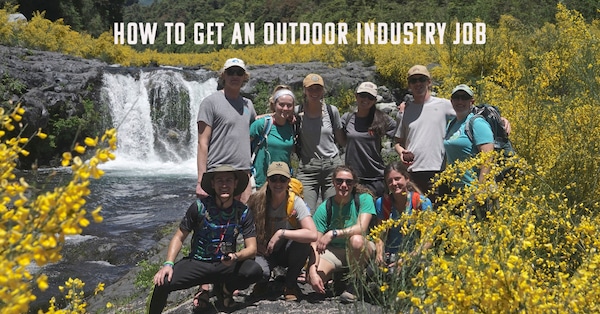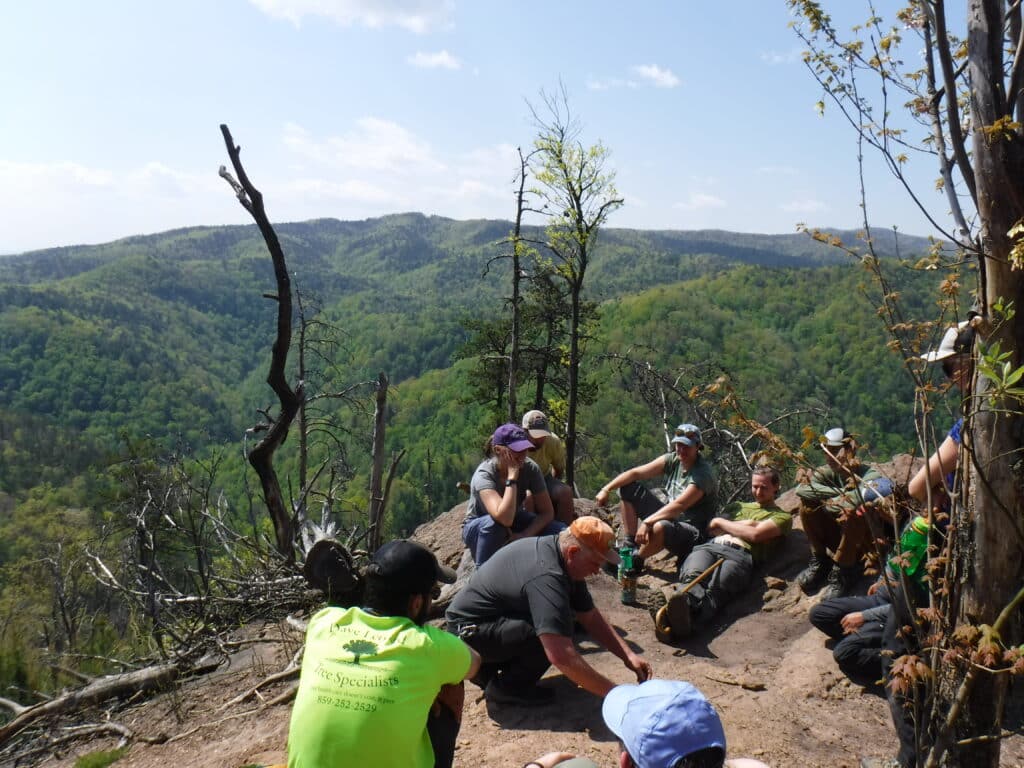Hands-on Training is the Key to a Career in the Outdoor Industry
Outdoor IndustryFor anyone interested in a career in the outdoor education, adventure programming, and guiding sectors of the outdoor industry, there are many trails to reach your destination. Among these are university recreation programs, internships, seasonal employment and more.
Not all pathways in this wide and diverse industry necessarily require a recreation-specific degree. However, an associate’s or bachelor’s degree offers job seekers a leg up when it comes to qualifying for an administrative position, as well as positions in environmental education or academia.
And while a college degree is helpful and even required in some sectors of this great outdoor industry of ours, what this industry truly values most is hands-on experience. That experience — in combination with holding the relevant certifications — is the key to successful advancement in outdoor education and adventure programming employment.

Gaining real-world experience is essential, whether you’re pursuing a college degree or not. And one of the best ways to jump start your outdoor industry career is to find seasonal employment working in the field. Taking a part-time or summer job offers a great opportunity to start gaining the needed experience.
Types of Outdoor Industry Organization
Seasonal opportunities abound, including through the following types of organizations: (more…)
Outdoor Industry Jobs Require Personal Experience and Certifications
Outdoor Educator TrainingProfessional development — learning that allows you to earn or maintain professional credentials — is key to career planning, especially when it comes to considering a career in the outdoor adventure and education industry. Much more than participating in a bunch of classes, our sector of the outdoor industry looks favorably on applicants with wilderness medicine training and certification, skills training and certification, and hands-on guiding and expedition leadership experience.
Truth is, we here at NCOAE found that operating an adventure education company during a health pandemic was challenging. And staffing our AEE-accredited organization with highly experienced instructors became increasingly difficult but not impossible.

Like other industries, we suffered a staffing shortage, and yes, some of our existing staff left to pursue other pathways. But what we’ve noticed lately is a lack of experience from some people who thought working in the outdoors would — quite literally — be a walk in the park.
Many of these would-be outdoor educators and guides decided that sitting on a couch while looking at photos and films of wilderness expeditions was a suitable alternative for actually going out and experiencing the outdoors.
This potential pool of applicants backed out and went the way of the “Instagram Adventurer” or the “Armchair Explorer.” And in talking with our colleagues across our sector of the outdoor industry, we’re not alone in seeing this trend. Nearly all outdoor adventure and education organizations are taking pause and evaluating the future of trainings, staff recruitment, and what it means to be qualified to head out into “wild places.”
Regardless of what other organizations choose to do about their staffing challenges, NCOAE will not budge on what is required of our field instructor and outdoor educator candidates. Hands-on experience coupled with recognized industry certifications still matter and always will.
If you’re interested in a seasonal or full-time job in outdoor education, here are my recommendations on how to proceed. (more…)
For Outdoor Educators, LinkedIn is as Important as a Compass
Working at NCOAEAs seasonal hiring for outdoor educators draws to a close, we thought it’d be a good idea to share why it’s so important that outdoor educators use LinkedIn.
 If you’re unfamiliar with LinkedIn, it’s a professional networking website that allows its members to create and maintain online profiles with resume-like features, including job history, certifications, professional affiliations, recommendations from coworkers and previous employers, awards, educational history, and much more.
If you’re unfamiliar with LinkedIn, it’s a professional networking website that allows its members to create and maintain online profiles with resume-like features, including job history, certifications, professional affiliations, recommendations from coworkers and previous employers, awards, educational history, and much more.
For employers, LinkedIn offers a place to post job openings and paid advertisements, and to search for potential employees. There’s a lot more to the site than that, but for the purposes of today’s post, that’s what you need to know.
With about 300 million registered users, LinkedIn has become the default online tool for professional networking. In the United States alone, around 93 million people are using LinkedIn. So don’t think for a minute that just because you work in outdoor education — where we’re known for bucking trends and ignoring technology — that LinkedIn doesn’t matter. Anytime a website attracts nearly 30 percent of the adult population, it matters!
Here at The National Center for Outdoor & Adventure Education, we’re just as likely to search for an applicant’s online profile as we are to call for references. In other words, we take this hiring thing pretty seriously, and if you don’t have a LinkedIn profile, well, that just makes us question how serious a professional you are. Think about it: Just because we’re hiring you to hike, climb, raft and guide doesn’t mean you’re not to be taken seriously.
So how should you use LinkedIn? For starters, you want to (more…)
TALK TO US
Have any further questions about our courses, what you’ll learn, or what else to expect? Contact us, we’re here to help!